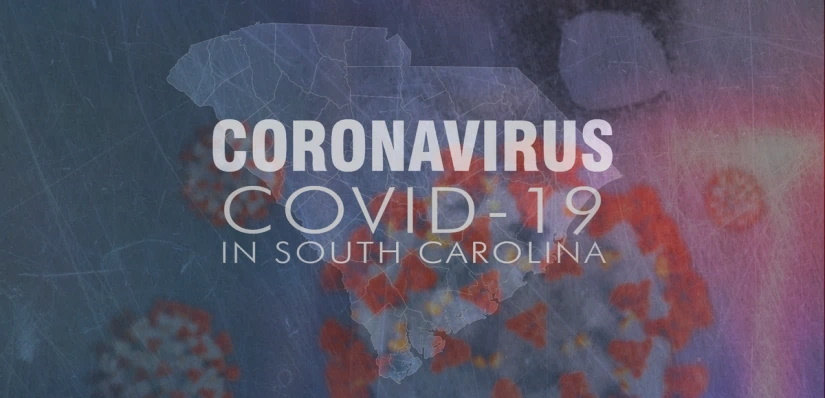Photo credit: Columbia WIS TV
October 22, 2020 | Erin Bluvas, bluvase@sc.edu
The University of South Carolina, the South Carolina Department of Health and Environmental Control (DHEC) and community partners are teaming up to fight COVID-19 in our state. SC STRONG (Sampling and Testing Representative Outreach for Novel coronavirus Guidance) is a new statewide project that will help leaders better understand disease impact and identify potential health inequities in our state.
Melissa Nolan, assistant professor of epidemiology at UofSC, and Virginie Daguise, director of DHEC’s Bureau of Chronic Disease and Injury Prevention, are launching
a new representative testing strategy to prospectively assess and monitor COVID-19
within South Carolina. Partnering with collaborators* from academic institutions,
government agencies, family medicine and pediatric clinics, and nonprofit organizations
across the state, Nolan and Daguise will help track current infection rates and evidence
of immunity among various populations.
“We’re trying to better understand the patterns of transmission within specific populations
and we’re looking for existing immunity within individuals who have already recovered
from infection,” Nolan says. “We’ll be using this information to make projections
about the dynamics of both the spread and the immunity within specific populations
– by geographical area, for example – so we can help inform public health officials’
and policymakers’ decisions about the distribution of resources, such as vaccinations,
testing, treatment, etc.”
Participants will include a randomly selected sample of South Carolinians ages five
and older, who will be contacted via mail and invited to complete an online health
survey and coronavirus testing. The team will also work with local healthcare providers
and community partners to collect a nasal swab (oral swab for children) and blood
sample (finger prick for children). These activities will be completed every three
months over a 12-month period to better understand infection and immunity over time.
New residents will be randomly selected each quarter for testing, and this first round
will include 32,500 local South Carolinians. Participants will receive free and confidential
testing results.
With the diverse makeup of the project’s team and community partners, Nolan and Daguise will tailor the project’s outreach strategies and survey designs to ensure that all South Carolinians are represented, including those in underserved and hard-to-reach rural areas.
“It’s very important that we include an accurate representation of the residents within this state, so we can get the right resources to the right people at the right time,” Daguise says. “To that end, we’re open to exploring various methods to incentivize and enable participation, such as providing testing at a trusted healthcare site, having Spanish translated documents, and special considerations such as transportation assistance or home visits for homebound individuals.”
The team’s biostatisticians and epidemiologists will prepare interim reports throughout the duration of the project to regularly keep stakeholders and decision-makers updated with the most current data and information learned from this project. These reports will include geospatial hotspot analysis, community herd immunity rates based on a variety of population characteristics, and infectious disease forecasting models based on the team’s latest sampling data.
For more information, please visit the project website at: https://scstrong.sc.edu/ or contact project personnel at 803-576-7378 or scstrong@sc.edu
* Additional partners include Clemson University, Health Sciences South Carolina, Medical University of South Carolina, Prisma Health, South Carolina National Guard, South Carolina Office of Rural Health, and South Carolina Primary Health Care Association.
